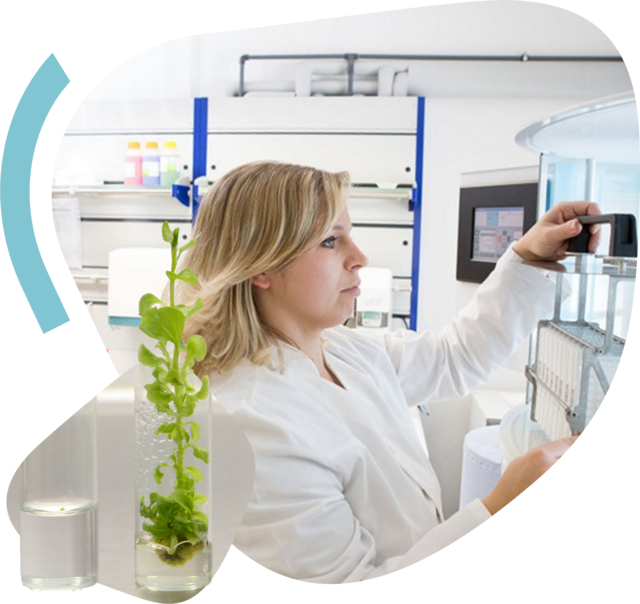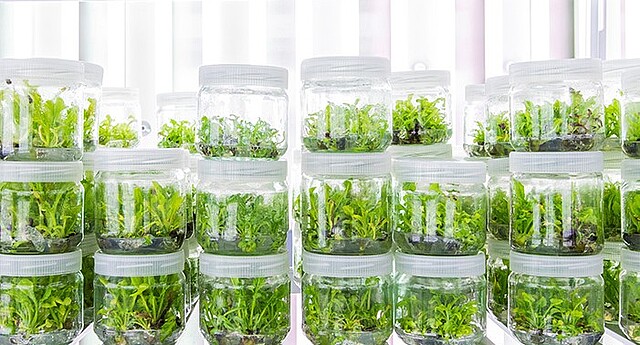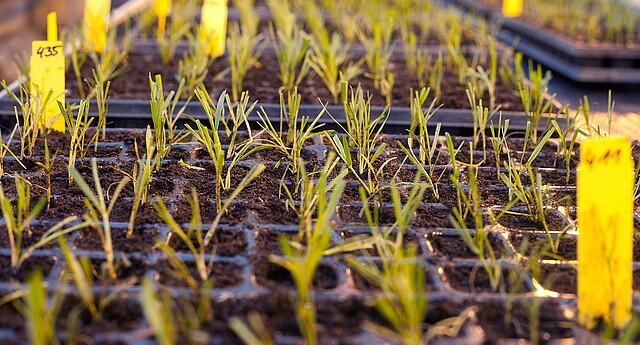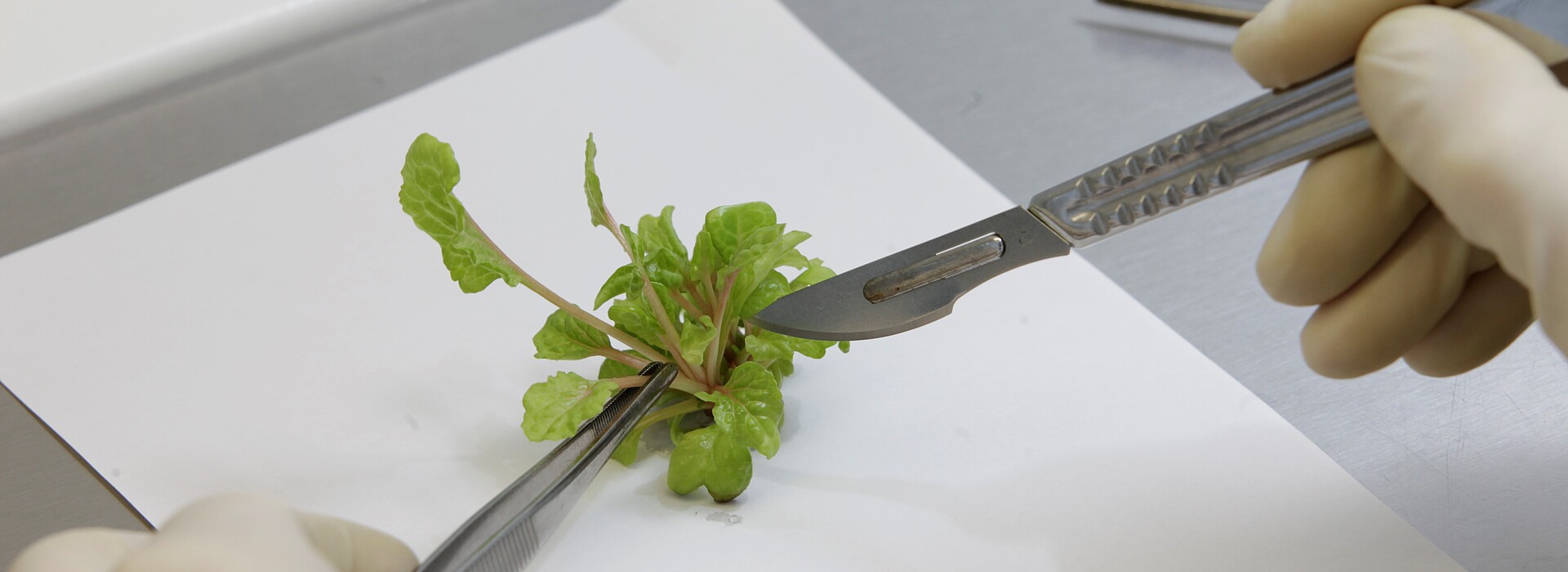
Biotechnology for Precision Breeding
The recent decades have seen tremendous progress in plant breeding. In no small part, this was made possible by biotechnological advances such as marker-assisted selection, cell and tissue culture and double-haploid technology. Biotechnology has become an integral part of modern plant breeding processes, provides new avenues for crop improvement and accelerates the time-to-market of new varieties.
Biotechnology is also an important cornerstone of our research on the genetic basis of breeding traits, methodological innovations, and their potentials for the continuous improvement of our varieties.
In collaborative projects with public or private partner organizations and through internal research this has led to the discovery of new genes and molecular markers and enabled procedural improvements at various steps of the breeding process.





